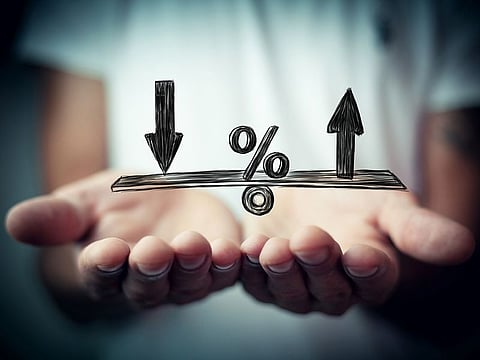No interest rate cuts expected in June: How it can affect UAE residents
What the US, UAE central bank decisions mean for your loans, savings, and investments

Dubai: If you’ve been hoping for lower loan payments or better mortgage deals this summer, you might want to hold off those plans—at least for now. The US Federal Reserve, which plays a huge role in setting borrowing costs globally, including how much you pay on loans in the UAE, is not planning to cut interest rates this June.
So what’s going on?
Despite inflation slowing down and some prices looking more stable, the Fed is still playing it safe. Two big reasons:
Trade uncertainty – With new tariffs being discussed and imposed—especially between the US, China, and Europe—there’s a lot of unpredictability about future prices.
Steady job market – The US economy isn’t showing major signs of weakness. That means there’s no rush for the Fed to cut rates to ‘stimulate’ growth.
In fact, some US policymakers are now openly questioning whether any rate cuts are needed at all this year. Fed Governor Christopher Waller recently pointed out that the economy is still “rip-roaring” along, and that it might take several more months of data before officials feel confident inflation is truly under control.
Adding to the mix, President Donald Trump’s talk of sweeping new tariffs—possibly 60% on Chinese imports and 10% on others—has economists worried. Fed officials say if these policies are implemented, it could push up prices again, forcing the Fed to keep interest rates higher for longer.
So for now, the Fed’s stance is clear: better to wait than cut too soon and risk inflation roaring back.
Why this matters to you in the UAE
Even if you’re not in the US, this decision affects you more than you might think—especially if you live in the UAE where the dirham is pegged to the US dollar. That means any move the US makes on interest rates usually gets mirrored by the UAE Central Bank.
Here’s how that plays out in your daily life:
Loan repayments stay high: Whether it’s a car loan, personal loan, or mortgage, don't expect those rates to drop just yet.
Credit card costs remain expensive: Still paying off that big-ticket gadget or travel expense? The monthly interest isn’t going to ease up.
Fixed deposits offer better returns (for now): On the bright side, if you’ve parked cash in a fixed deposit or savings plan, your returns are still higher than they were a couple of years ago.
Investors stay cautious: Stock markets, including global funds some UAE residents invest in, are jittery. A delay in rate cuts can mean more volatility and fewer gains in the short term.
Tariffs, tension = economic caution
US politicians, including President Donald Trump, are floating big changes to import tariffs—think 25% to 50% taxes on goods coming in from places like China and Europe. These could drive up costs and push inflation back up.
That’s why Fed officials are choosing to wait it out. They want to make sure any action they take (like cutting rates) won’t backfire if inflation makes a comeback.
One senior Fed official said that while rate cuts could still happen in the next 10 to 16 months, it’s just too early to act now.
What should you do now?
If you’re planning to borrow, budget carefully. Rates won’t ease soon, so make sure you’re not overextending.
Keep an eye on your savings. High interest is good for depositors—lock in long-term savings if possible.
Review your investments. Market volatility may continue, so diversify and consider lower-risk options for the short term.
Prepare for uncertainty. Just like the Fed, it’s best to stay cautious and flexible with big financial moves.
Bottom line? There’s no rate cut in June—but that doesn’t mean it won’t come later. For now, plan your finances as if borrowing will stay expensive for the next few months. And if you’re saving? Enjoy the higher returns while they last.
Sign up for the Daily Briefing
Get the latest news and updates straight to your inbox



